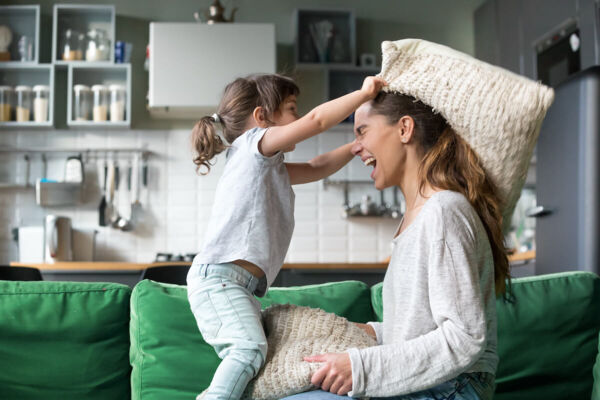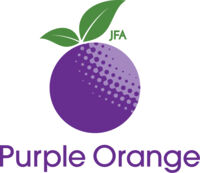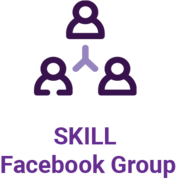Please login or register for an account to get started on building your SKILLs!
Exploring Your Vision
Key Learnings
- Everyone holds different roles
- Valued roles are roles valued by society because they provide things like companionship, wealth and independence
- People that have valued roles enjoy great benefits
With dreams and visions in mind, let’s look at an example of a person forming their best life. Katerina took part in a 12-month project that supported people living with acquired brain injury to achieve their goals.
Watch this clip to learn more about Katerina's journey.
Katerina changed her life by achieving some of the goals that formed her vision for her best life. These included living more independently, enjoying gardening, dancing, singing and music and embracing her Greek heritage.
Does this story relate to your own situation? What do you want to change in your life?
One way to think about things we want to change is through the concept of valued roles. Let’s start with what a valued role is and apply this to building a vision for your best life.
What is a Valued Role?
Valued roles are key to a good life. When we have work, community, civic, relationship and recreational roles we have the opportunity to meet people, develop our skills and feel positive about ourselves.
People living with disability can have trouble developing these valued roles, so it’s important that we focus on improving them. Social Role Valorisation is a model that can help us understand why this has been so. Social Role Valorisation, or SRV, offers ideas on how changing and valuing social roles can lead to positive changes in the lives of people living with disability.
We all have roles - work roles (teacher, office worker), relationship roles (mother, brother), civic roles (tax payer, voter) and leisure roles (football supporter, dancer). Most people gather many roles randomly over the course of their life, without the need for much consideration or effort. Many of the roles people have are valued because they are associated with attributes such as wealth, competence and independence.

People with disability typically have fewer roles, or fewer roles that have positive values. People who have many roles and roles that are associated with wealth, competence, etc are likely to be more valued than a person with fewer roles or roles that are linked to dependence or poverty. People without valued roles will also find it harder to access things that society calls the ‘good things in life’. Things like a home, meaningful work, opportunities to meet people and form relationships, just to name a few! Valued roles open the door to new possibilities and opportunities.
Imagine More is an inclusive organisation that supports people with disability and their families to get the good things in life. Have a look at their great resources on Social Role Valorisation and think about the roles you might want in your life.
Valued Roles
Below are some examples of valued roles. Do you think they are valued the same by everybody?

Think back to the video of Katerina earlier – what roles did she refer to?
- Member of her Greek community
- Sister
- Friend
- Peer group member (and project participant)
Think about the roles you have in your life
How can you more easily develop a list of potential roles to focus on? Have a look at the role checklist tables below for some ideas. These tables can help you work out the roles you have previously held, the ones you currently have, and the ones you would LIKE to have in the FUTURE.
Now, again next to EACH role, check the column which indicates how valuable or important the role is to you.
SRV shows us the importance of having roles in our community which are valued. Keeping them if they are valued is important and learning them or working towards them if we don’t have them yet gives us something to aim for. Hopefully it has helped you develop some ideas about what you may want to get/improve/change/grow/remove/learn/add in the future.

We can now use these ideas to put together your vision, that will form the basis for your GOALS! We want to make plans that align with your vision. This will ALL start via the process of PLANNING…
This is not always easy sailing for everyone, and you may face barriers. This is why peer support is so important as it offers a place to share your story and learn from others.


